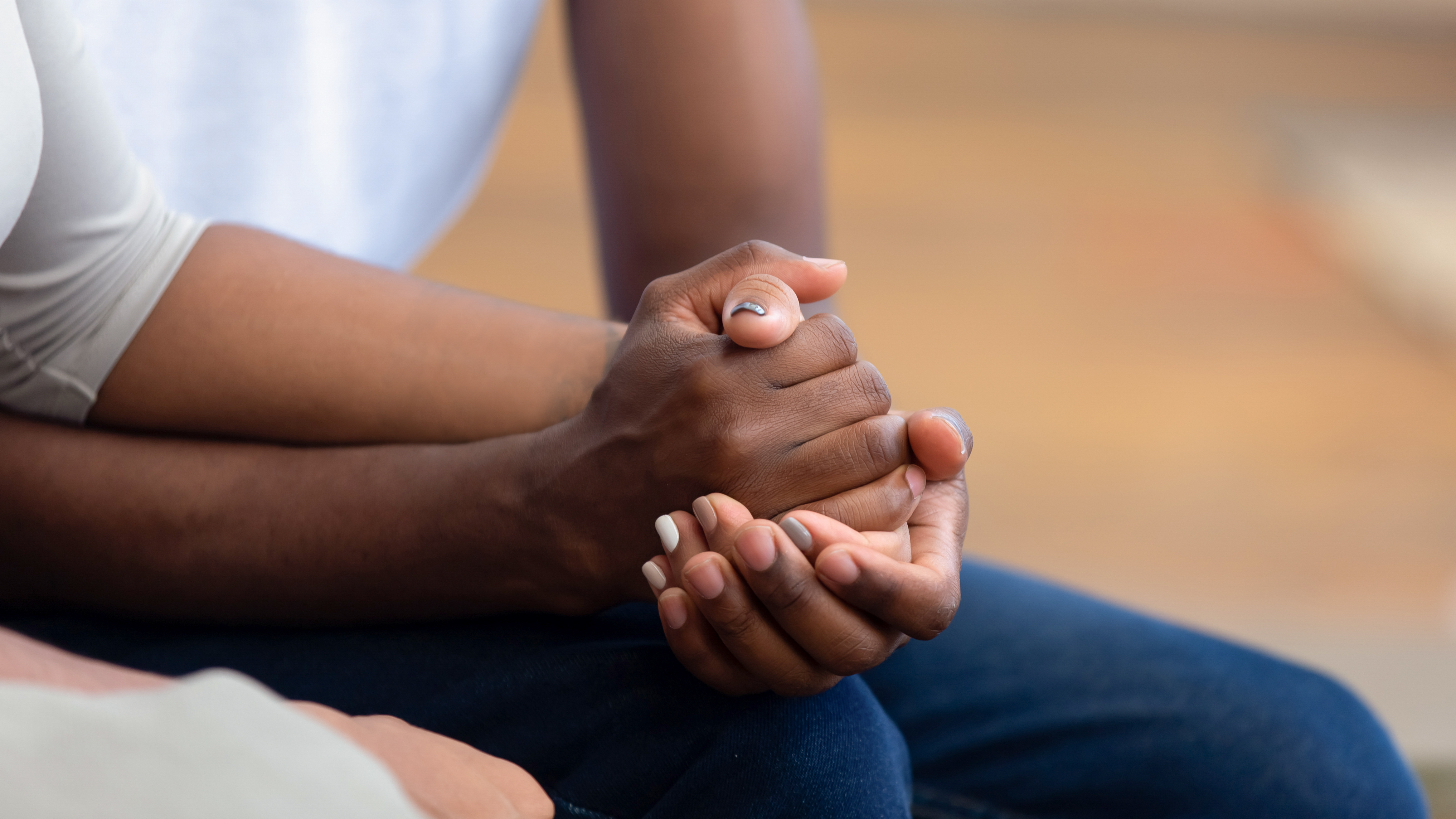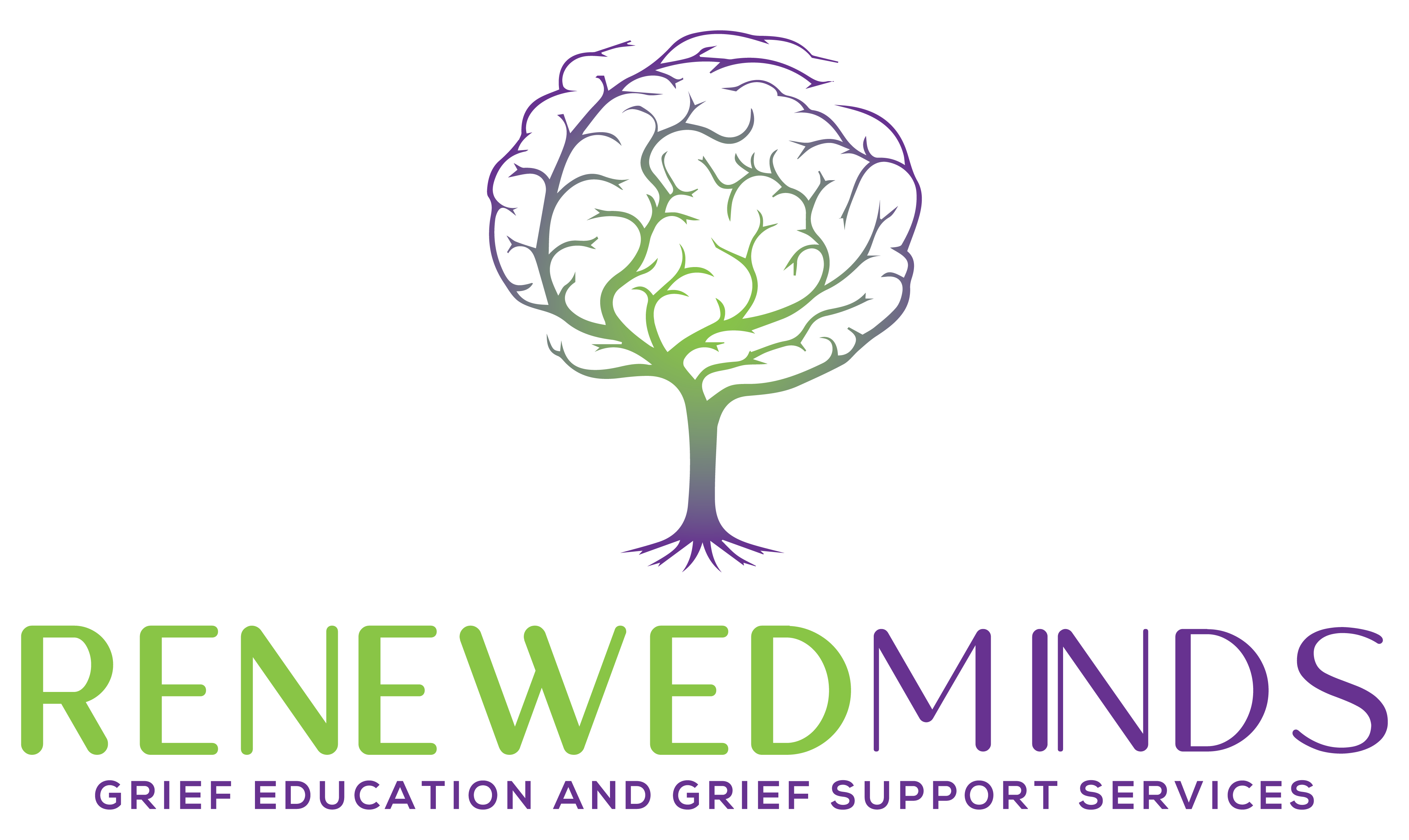Resources
Let’s learn, grow, and heal together!
What is Grief? Grief is a natural and normal response to loss. It is an adaptive process that is necessary for healing. When we grieve fully, we can eventually live fully again. But first, we need to understand what grief is, what it looks like, and what healing looks like.
We typically grieve the death of a loved one, but we can also grieve other non-death losses such as those listed below.
- Loss of physical health
- Loss of job
- Loss of a relationship
- Divorce
- Moving/Relocation
- Retirement
- Loss of belongings due to natural disaster
Loss can affect us emotionally, physically, spiritually, socially, financially, psychologically, and cognitively.
If you are grieving, it is also important to understand that people often mean well. They just don’t always know what to say or do to support you.

Unhelpful vs. Helpful Support
Unhelpful “Words of Comfort”
Although we have good intentions, using the following comments can be dismissive of a person’s pain and send the message that he or she should not feel or express true emotions. The grieving person may choose to grieve alone and in silence due to fear of being unheard or misunderstood. (This list is not exhaustive).
“He or she is in a better place.”
“There are plenty of fish in the sea.” (Divorce or break-up)
“At least she lived a long life.”
“It’s time to move on.”
“He’ll never put more on you than you can bear.”
“Be strong.”
“Don’t Cry.”
“I know how you feel.”
“She isn’t in pain anymore.”
“Time heals all wombs.”
“God knows best.” “It was part of God’s plan.”
Can you think of other unhelpful platitudes?
Sometimes, it’s best to say nothing and simply be present. Remember the following:
- Let go of the need to think of something positive to SAY. Think of something positive to DO to show your support.
[Ex. Buy groceries, give a gift card for meals, cut the grass or assist with household chores (when appropriate), etc.]
- You cannot take away their pain. Healing through grief takes time.
- Just listen and be present with their pain.
- Be patient, trustworthy, nonjudgmental, accepting, and compassionate.
- Acknowledge and validate their thoughts and feelings.
- Be honest about not knowing what to say…and that’s okay.
- Don’t force them to talk about the loss if they are not ready to do so.
- DO SOMETHING to assist them instead of saying “Call me if you need me.”
Frequently Asked Questions:
How long will my grief last?
Grief has no time limit. In fact, it is a continuous journey that you learn to live with over time. Your relationship with grief will change as time goes on, and although the pain may not entirely go away, the intensity of it lessens over time. Keep in mind that grief is not something you just “get over.” You go through it, and you learn to live with it. Not only do you go through it, but you can also grow through it. When you look back on your journey, you will be amazed at how far you have come. No matter how much time has passed, never lose hope! If you find that the pain’s intensity does not seem to be decreasing, you may need to seek professional grief counseling or therapy.
Do I need grief counseling?
The truth is, not everyone needs grief counseling or therapy. And let’s be honest, everyone cannot afford it. For some people, education and the right support systems in place is enough. However, grief can become complicated and may require professional counseling or therapy. Signs that you may need to seek further help include the inability to fully function (e.g. not able to get out of bed, not taking care of your personal hygiene, unable to go to work, etc.) although a significant amount of time has passed since the loss/death; constantly yearning for and longing to be with your loved one as though the loss just happened recently; having suicidal thoughts.
I feel alone in my grief. What should I do?
Whatever you do, do not grieve alone! Take it from me…not talking about your loss (especially when you really want to), causes us to suppress our thoughts and the feelings associated with our thoughts. Think about who makes up your support system. Keep in mind, having lots of family and friends does not mean you have a large support system. Sometimes it is difficult to find adequate support among those closest to us, especially if they are grieving the loss as well. Nonetheless, there is likely someone in your circle that can serve as good support. Reach out to someone who is trustworthy, nonjudgmental, compassionate, and someone who is willing to be present with you without imposing their own opinions. Also, check to see if there are any supports groups in your community. If not, there are many virtual support groups available online. Some are free, and others have a cost.
*
